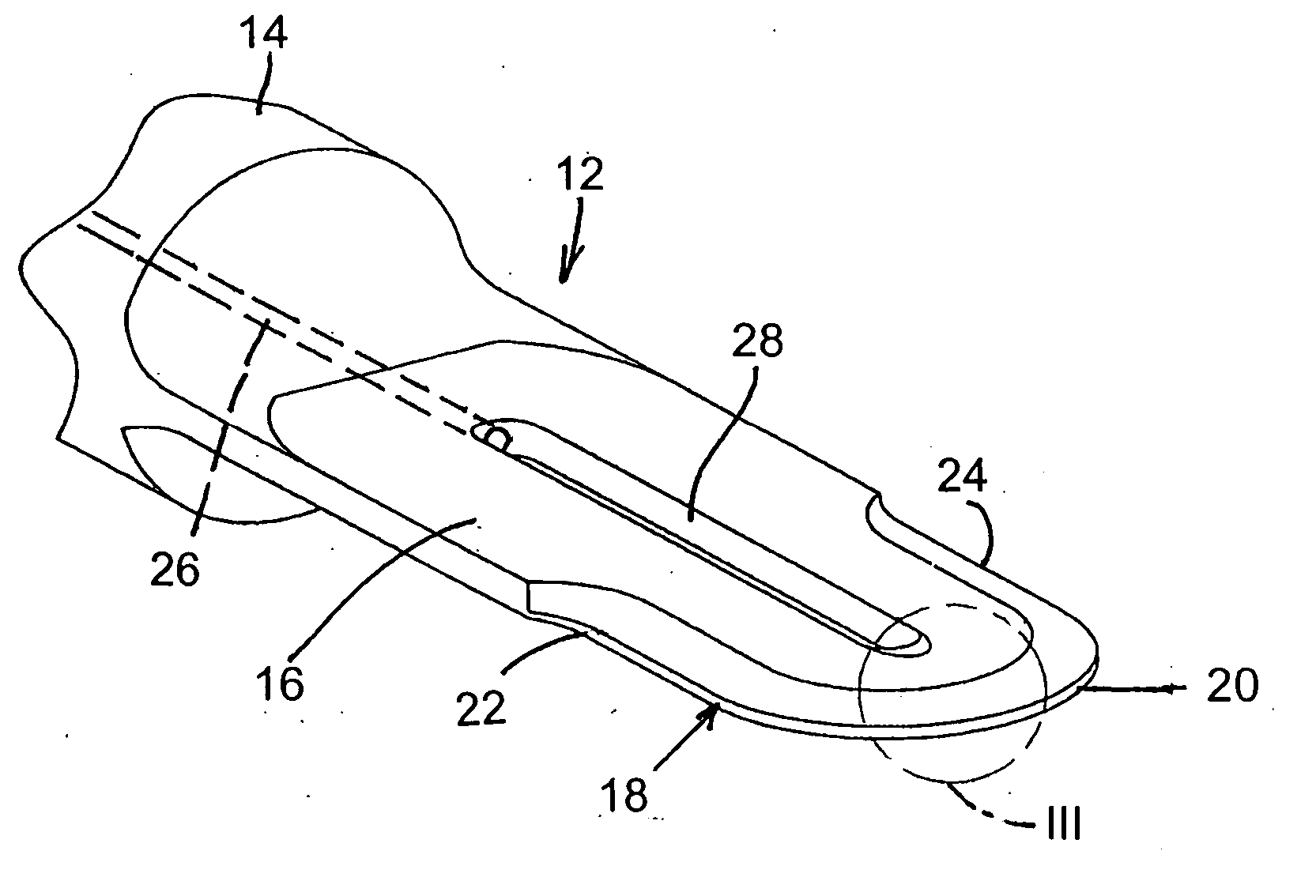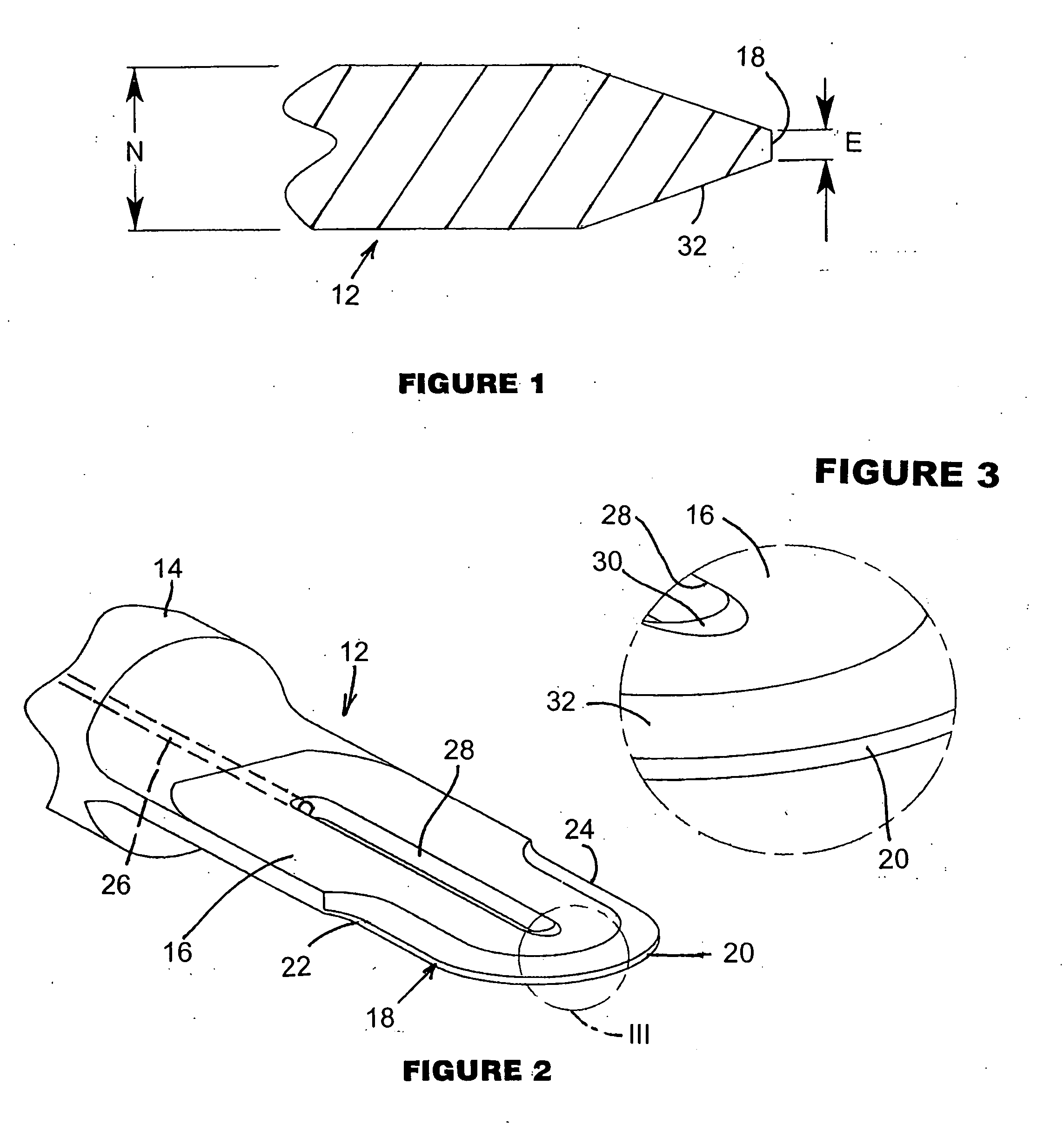Method for ultrasonic tissue excision with tissue selectivity
a tissue excision and ultrasonic technology, applied in the field of surgical methods, can solve the problems of steep learning curve, ineffective or even non-effective dry hard material such as hard cartilage or bone, and limitations of ablating instruments and cutting or incising instruments when used as surgical tools
- Summary
- Abstract
- Description
- Claims
- Application Information
AI Technical Summary
Benefits of technology
Problems solved by technology
Method used
Image
Examples
Embodiment Construction
[0026] As illustrated in the drawings, a cutting blade 12 for use in ultrasonically assisted surgery includes an integral shank portion 14 having an external screw thread (not shown) for replaceably mounting the blade to a probe. Alternatively, blade 12 may be permanently attached to the probe.
[0027] Blade 12 includes a planar blade body 16 having a thickness N. Blade body 16 is provided at an end opposite shank 14 with a blade or cutting edge 18 including a central circularly arcuate section 20 and a pair of linear end sections 22 and 24. Edge 18 is continuous along a full radius of arcuate section 20, as well as along straight sections 22 and 24.
[0028] As further illustrated in the drawings, blade 12 also incorporates structure providing a path for coolant from an irrigation pump (not shown) to reach blade edge 18, as well as tissues being cut during a surgical procedure. For conducting irrigant to blade edge 18 and the surgical site, shank portion 14 is formed with an axial pas...
PUM
 Login to View More
Login to View More Abstract
Description
Claims
Application Information
 Login to View More
Login to View More - R&D
- Intellectual Property
- Life Sciences
- Materials
- Tech Scout
- Unparalleled Data Quality
- Higher Quality Content
- 60% Fewer Hallucinations
Browse by: Latest US Patents, China's latest patents, Technical Efficacy Thesaurus, Application Domain, Technology Topic, Popular Technical Reports.
© 2025 PatSnap. All rights reserved.Legal|Privacy policy|Modern Slavery Act Transparency Statement|Sitemap|About US| Contact US: help@patsnap.com


